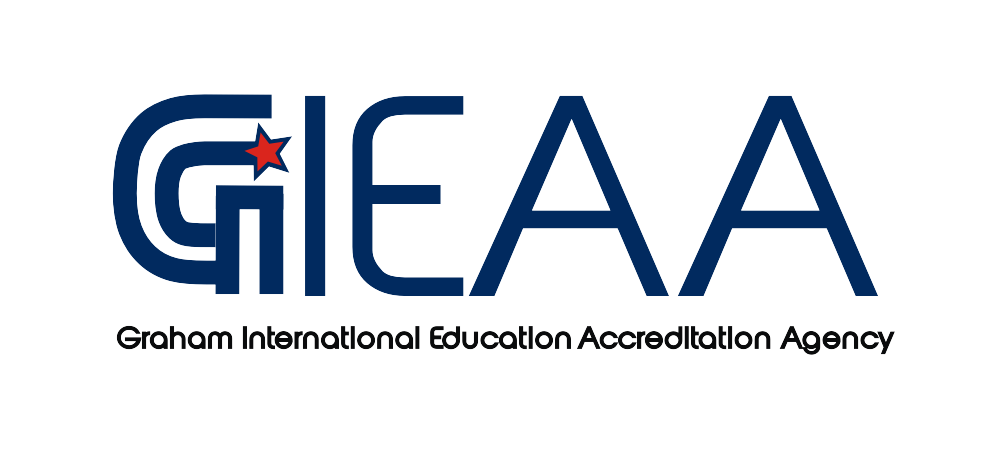
Accreditation plays a pivotal role in the global education landscape, serving as a benchmark for quality and credibility in institutions and programs. As the world continues to evolve, so do the standards of education, making accreditation more crucial than ever. The Graham International Education Accreditation Agency (GIEAA), a USA-based organization operating worldwide, ensures that educational institutions meet the highest levels of academic rigor, integrity, and operational excellence.
This article explores the significance of accreditation, its benefits for various stakeholders, and why it is essential for maintaining educational quality in a rapidly changing world.
What Is Accreditation?
Accreditation is a formal process through which an educational institution or a specific program is evaluated against established standards of quality by an independent accrediting body. In the U.S., accreditation is often overseen by agencies recognized by the U.S. Department of Education or the Council for Higher Education Accreditation (CHEA). Internationally, accreditation and quality assurance bodies like GIEAA and the Asia-Pacific Quality Network (APQN) ensure institutions worldwide meet local and global standards of excellence.
Accreditation can be institutional—evaluating the entire institution—or programmatic, which focuses on specific academic programs such as business, engineering, or healthcare.
Why Is Accreditation Important?
Accreditation serves as a quality assurance mechanism, providing a guarantee to students, parents, employers, and governments that an institution meets rigorous educational standards. The importance of accreditation can be broken down into several key areas:
1. Ensuring Academic Quality
Accreditation agencies like GIEAA conduct thorough reviews of academic programs to ensure that curricula, faculty qualifications, student services, and assessment methods meet established benchmarks. This process ensures that institutions offer programs that are academically sound, relevant, and competitive in a global education market.
2. Promoting Continuous Improvement
The accreditation process is not a one-time event. Institutions are required to maintain and often exceed the standards set by the accrediting body over time. This promotes a culture of continuous improvement, where educational institutions are encouraged to regularly assess their performance and implement changes that enhance learning outcomes, research quality, and institutional effectiveness.
3. Building Credibility and Trust
Accreditation adds a layer of trust for students and the public. A degree or certification from an accredited institution is often viewed as more valuable, increasing the institution’s reputation and credibility. In many countries, government funding, student scholarships, and financial aid are tied to accreditation status, making it critical for institutions seeking public or private support.
4. Facilitating International Recognition
In an increasingly globalized world, students and professionals often seek to study or work abroad. Accreditation from a recognized body, like GIEAA, ensures that degrees and certifications are recognized internationally, allowing graduates to pursue further education or employment opportunities across borders. It also enables student mobility, as credits earned at an accredited institution can be transferred more easily to other institutions worldwide.
5. Enhancing Employability
For students, graduating from an accredited institution can greatly enhance employability. Employers often look for qualifications from institutions that have been accredited by reputable bodies because they know these institutions adhere to high academic standards. Accreditation acts as a signal to employers that graduates are equipped with the skills and knowledge necessary for the workforce.
6. Ensuring Financial Aid Eligibility
In the U.S., federal and state financial aid programs are generally only available to students attending accredited institutions. Internationally, many scholarship programs also require applicants to study at accredited institutions. Without accreditation, students may not be eligible for crucial financial support, which can be a significant barrier to accessing quality education.
7. Fostering Accountability and Transparency
Accreditation promotes institutional accountability by requiring educational providers to be transparent about their operations, governance, financial health, and student outcomes. Accrediting bodies like GIEAA perform regular audits, site visits, and reviews to ensure that institutions meet standards and operate ethically and effectively.
8. Encouraging Institutional Autonomy
Accreditation agencies provide a framework for quality without interfering with the autonomy of institutions. While standards must be met, accredited institutions retain the freedom to innovate, develop unique programs, and address the needs of their communities. This balance between quality control and institutional freedom fosters diversity in educational offerings while ensuring high standards are upheld.
Global Impact of Accreditation
As education becomes more global, accreditation bodies like GIEAA have expanded their operations to include institutions and programs across the world. This international approach to accreditation helps standardize the quality of education, enabling students from different countries to access education that meets global standards.
The Role of GIEAA in Global Accreditation
As a USA-based accreditation agency with a global presence, GIEAA plays a critical role in advancing educational quality across borders. We uphold the principles of academic excellence, innovation, and integrity, ensuring that institutions in the U.S. and beyond meet rigorous standards.
GIEAA’s approach to accreditation includes:
In Conclusion…
Accreditation is fundamental to ensuring that educational institutions maintain high standards of teaching, learning, and operational excellence. For students, it guarantees a quality education and enhances employability. For institutions, accreditation boosts credibility, opens doors to international recognition, and fosters a culture of continuous improvement.
At GIEAA, we are proud to be at the forefront of global accreditation efforts, ensuring that institutions worldwide provide education that meets the needs of today’s dynamic, interconnected world. Through rigorous review and support for innovation, GIEAA remains committed to fostering excellence in education across the globe.
Join us to achieve the highest internationally approved standards of excellence in education.
